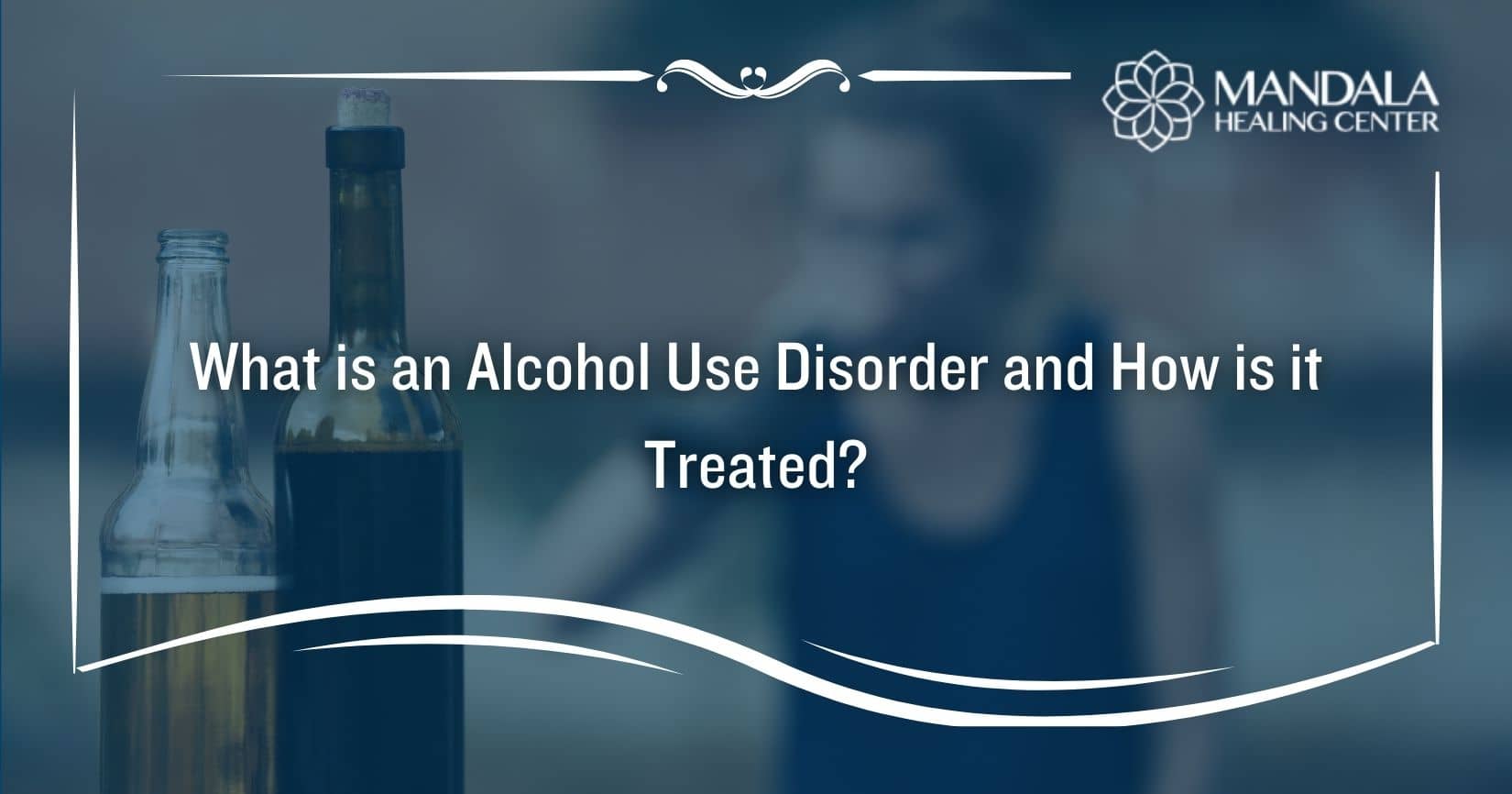Alcohol use is common and accepted by many people in the United States. Whether you’re at a restaurant, party, or other special event, you’re likely to have the option of drinking an alcoholic beverage. Studies show that most adults in the United States drink alcohol occasionally. While many people can drink moderately as part of a generally healthy lifestyle, some develop unhealthy drinking habits that can lead to physical dependence or addiction.
An alcohol use disorder is a term that describes drinking that is likely to harm your health and lead to addiction. Having an alcohol use disorder means you can no longer control your alcohol use, even when your drinking causes significant problems.
This guide will outline basic information about what it means to have an alcohol use disorder. If you or someone you love needs treatment for an alcohol use disorder, reach out to the specialists at the Mandala Healing Center to explore our programs and find support.
What is an Alcohol Use Disorder?
An alcohol use disorder (AUD) is the medical diagnosis for a drinking problem. It is commonly known as alcoholism, but also encompasses alcohol abuse and alcohol dependence.[1]
Alcohol use disorders fall on a scale and range from mild to severe. People who drink alcohol regularly may develop tolerance, meaning they must increase their alcohol intake to get the desired effects. Over time, regular heavy drinking can cause lasting changes in your brain that make it very challenging to stop drinking without professional treatment and ongoing support.
Even severe alcohol use disorders can respond to intensive, comprehensive treatment. Recognizing the symptoms of an alcohol use disorder is the first step toward getting the help you need to stop drinking and avoid relapse for the rest of your life.
Risk Factors for Developing an Alcohol Use Disorder
Several factors can increase your likelihood of developing an alcohol use disorder.
Drinking at an early age
Research shows that people who started drinking alcohol before they were 15 years old were more than three times as likely to develop alcohol use disorder than people who abstained until they were 21.[1] Female respondents who began drinking early in life were more at risk for AUD than the males surveyed.
Family history
Genetics and family history can affect your likelihood of developing alcohol use disorder. Addiction experts believe that your genetics may account for about 60% of your risk of developing an AUD, and children who grow up with parents with unhealthy drinking habits may be more likely to develop them later in life.[2]
Mental illness and trauma
Your mental health can impact your risk of developing unhealthy drinking patterns and AUD. Common mental illnesses like depression, ADHD, and PTSD can increase your likelihood of alcohol abuse and addiction. Experiencing childhood trauma can also make it more likely that a person will struggle with alcohol abuse or dependence later in life.
While your risk factors may play a significant role in your likelihood of developing an alcohol use disorder, your environment and choices can help reduce your risk and overcome addiction at any stage.
Symptoms of Alcohol Use Disorder
Living with an alcohol use disorder often means experiencing physical, emotional, social, and behavioral changes that may be recognizable to others. Some of the symptoms of an AUD include:
- Frequently drinking more or longer than you intended to
- Trying to reduce or stop drinking but being unable to do so
- Spending a lot of time drinking or recovering from drinking
- Craving alcohol
- Neglecting your relationships, hobbies, and responsibilities at work, home, or school because of your drinking
- Being in hazardous situations because of your drinking, such as driving under the influence or having risky/unwanted sexual behavior
- Continuing to drink even though it’s harming your health and relationships or after you’ve blacked out
- Needing to drink more to get the desired effects
- Experiencing withdrawal symptoms like sweating, nausea, restlessness, or depression when you stop drinking
Someone who experiences some of these symptoms may require treatment for alcohol use disorder.
What is the Treatment for Alcohol Use Disorder?
Alcohol use disorder is a complex condition that requires comprehensive treatment. For many people with AUD, treatment begins in a medically-supported detox program. In a supervised detox program, people will receive treatment and support that allow them to have a safe, complete detox from alcohol.
While essential, detox alone is not enough for lifelong recovery. Instead, people with AUD need compassionate, evidence-based treatment that addresses the physical, emotional, and behavioral components of addiction.
Comprehensive treatment for alcohol use disorder includes:
- Medications to manage withdrawal symptoms and reduce cravings
- Individual counseling that focuses on identifying the roots of an AUD and correcting destructive thoughts and patterns
- Group therapy to provide a sense of community and allow for improved communication skills
- Family therapy that enables family systems to heal and move forward together
- Holistic therapies to support overall health and wellness, like nutrition support, mindfulness, yoga, and music therapy
- Relapse prevention education to increase resilience and provide healthy alternatives to drinking
After completing treatment for alcohol use disorder, people must follow an aftercare plan to stay engaged in their recovery and committed to sobriety for life.
Get Help Now
If you or someone in your life needs treatment for alcoholism, reach out to the team at the Mandala Healing Center today. Our alcohol rehab programs empower people as they recover from addiction and gain the skills they need to live a healthy, sober lifestyle.
Don’t wait another day to get the help you need and deserve. Call us today to begin your recovery journey.
References:
- National Institute on Alcohol Abuse and Alcoholism: Understanding Alcohol Use Disorder, Retrieved June 2023 from https://www.niaaa.nih.gov/publications/brochures-and-fact-sheets/understanding-alcohol-use-disorder
- University of Rochester Medical Center: Alcoholism and Family History, Retrieved June 2023 from https://www.urmc.rochester.edu/encyclopedia/content.aspx?ContentTypeID=1&ContentID=4141












